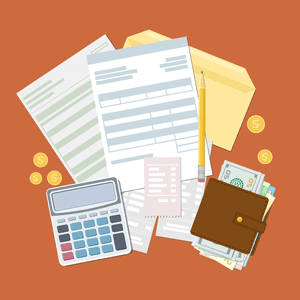When you see your physician, visit the pharmacy, or make another healthcare-related purchase, you may wonder “Why should I keep my healthcare receipts?”
Whether the expense was for yourself or a qualified dependent, there are some important reasons to keep your receipts. If you have a Flexible Spending Account (FSA), Health Reimbursement Arrangement (HRA), or Health Savings Account (HSA), you could be risking your ability to get reimbursed.
7 Reasons to keep your healthcare receipts
1. Purchase verification
When you sign up for an FSA or HSA, many employers offer a benefits debit card. The cards generally have restrictions on where you can use it (approved stores and offices) and what you can buy with it (see a list of FSA Eligible Expenses). Most of the time, your purchases are verified at the time of purchase.
However, even when you use your FSA benefits card, your administrator may still ask that you turn in your receipts to verify the purchase. Of course, if you don’t have a benefits debit card and pay out of pocket, you should always keep your receipts or else you will not get reimbursed.
2. In case of dispute
If there’s a dispute about which expenses you paid for and which you didn’t, your receipts are hard proof of purchase. A receipt should have the date, product(s)/service(s) provided, cost, and payment method.
3. End of year claims
If your FSA offers a run out period, you can still file claims after the plan year is over.
For instance, say you paid out of pocket and then later realize you never submitted the claim, you risk losing that money. You can use saved receipts to file a claim for the previous year (within the run out period). A run out period generally lasts up to 90 days after the plan year ends.
4. HRA claims reimbursement
HRA plans are fully funded by the employer and the employer also chooses what expenses to cover (as long as the expenses are IRS-approved). The employee does not pay into the benefit and it does not count toward your income. It’s basically free money.
However, to access those HRA funds, many HRA plans require that the employee pays first and then submits a claim for reimbursement. If you do not have proof of your expense, you will not get reimbursed.
5. HSA spending
With an HSA, you can only spend your available balance. However, you do have the option to submit receipts at a later date and file a claim for reimbursement. If your HSA was opened before you had the expense, you can file a claim for reimbursement at any time. You can even file a claim years later. Learn more about HSA claim time limits.
6. Healthcare planning
Keeping your receipts is a good way to track how much you spent in the past year. This can help you when you’re deciding how much to contribute to your FSA or HSA next year. Here are some planning tips.
7. IRS auditing
While it is not common, you can be audited by the IRS. It is always a good idea to keep your receipts for up to 7 years in case of an audit.
It cannot be stressed enough – always keep your healthcare receipts. You never know when they’ll come in handy.
Captain Contributor is an award-winning employee education program sponsored by DataPath.

